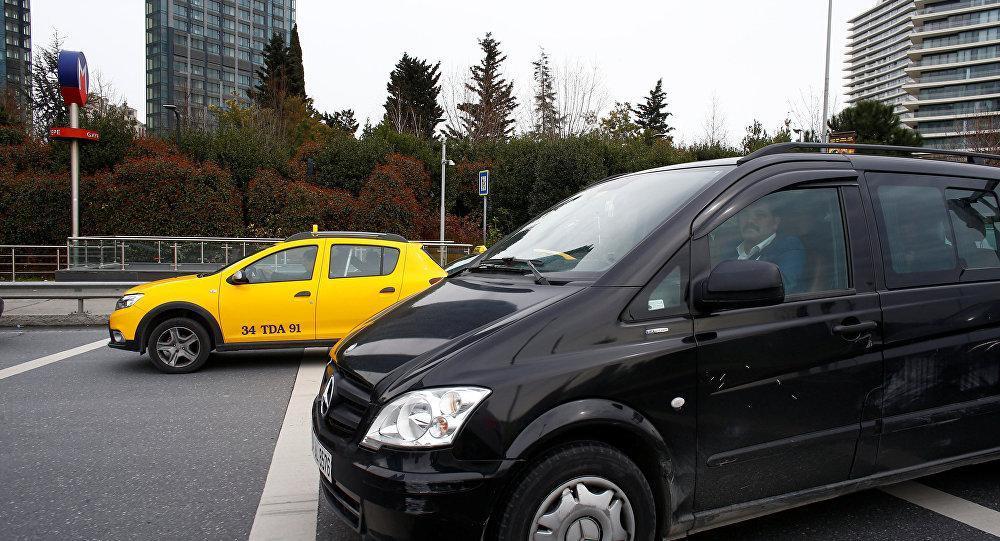
Taxi associations have said they are satisfied with the Turkish government’s new regulation to “prevent illegal passenger transportation,” declaring the “end of Uber” in Turkey.
“We regard the new regulation as positive. We find it a deterrent measure. As of today, Uber is finished. If an Uber vehicle is caught [by the police] a fine of 50 points and 3,006 Turkish Liras will applied. When the money is paid, the fine of 50 points will be canceled. But if a vehicle is caught a second time under any circumstances, the certificates of the related firm will be revoked and it will not be able to apply for a certificate for two years,” said Istanbul Taxicab Merchants Chamber (İTEO) head Eyüp Aksu on May 29.
“Many firms have started to take back the D2 certificates that they gave [to Uber drivers],” Aksu added, referring to the documents given to private companies for unscheduled, contract-based passenger transportation without tickets or fares.
The government ordered a change in the Road Transport Regulation to increase the fines applied to D2 certificate holders who illegally serve as taxis on May 25.
According to the new rules, a D2 certificate holder company caught carrying passengers illegally will be fined 3,006 liras. If the offense reoccurs then the certificates related to all of the company vehicles will be revoked and the company will be put on a blacklist for two years, making it unable to apply for a certificate.
Some taxi drivers have demanded even harsher measures to prevent mobile application-based systems like Uber and others.
“We want the fines to be more clear and deterrent. The police department should tighten the controls,” said Fahrettin Can, chair of the Istanbul Atatürk Airport Taxi Drivers Cooperative.
Tensions have spiked in recent months between taxi drivers and Uber drivers in Istanbul, amid reports of physical attacks carried out by taxi drivers.
On March 10, shots were fired at an Uber vehicle in the city’s Küçükçekmece district, after which Uber released a statement about the rising number of violent incidents targeting Uber vehicles in Turkey.
Unlike in most other countries, Uber offers a more expensive service to customers. As a result, competition between traditional taxis and Uber in Turkey is largely based on quality rather than price, with many locals complaining of poor service provided by taxi drivers.
İTEO and other associations have repeatedly called on the authorities to intervene and filed a suit against the Uber application.
“Everyone should know that any business without a legal basis will end up like this … I thank everyone who has contributed to this decision, especially to the political authority,” said Ahmet Çavuş, the head of the taxi drivers association, at Istanbul’s Sabiha Gökçen Airport.
On the other hand, “We want to work with all local stakeholders to improve urban mobility in Turkish cities and are fully committed to being a true partner to Turkey for the long term,” Uber stated on May 30.